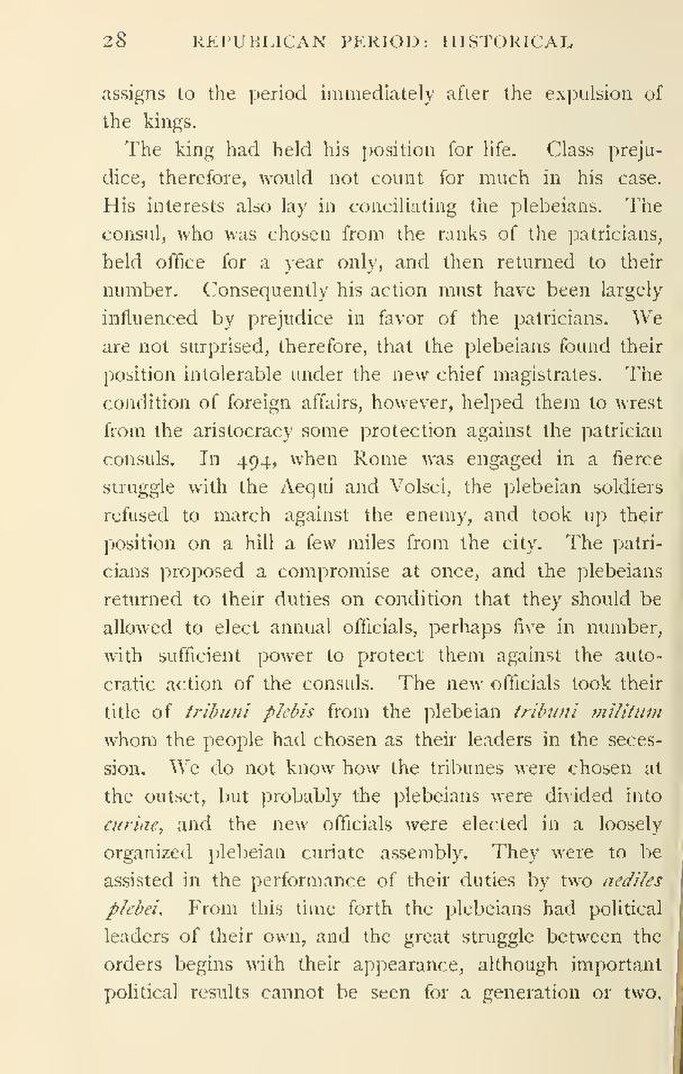assigns to the period immediately after the expulsion of the kings.
The king had held his position for life. Class prejudice, therefore, would not count for much in his case. His interests also lay in conciliating the plebeians. The consul, who was chosen from the ranks of the patricians, held office for a year only, and then returned to their number. Consequently his action must have been largely influenced by prejudice in favor of the patricians. We are not surprised, therefore, that the plebeians found their position intolerable under the new chief magistrates. The condition of foreign affairs, however, helped them to wrest from the aristocracy some protection against the patrician consuls. In 494, when Rome was engaged in a fierce struggled with the Aequi and Volsci, the plebeian solders refused to march against the enemy, and took up their position on a hill a few miles from the city. The patricians proposed a compromise at once, and the plebeians returned to their duties on condition that they should be allowed to elect annual officials, perhaps five in number, with sufficient power to protect them against the autocratic action of the consuls. The new officials took their title of tribuni plebis from the plebeian tribuni militum whom the people had chosen as their leaders in the secession. We do not know how the tribunes were chosen at the outset, but probably the plebeians were divided into curiae, and the new officials were elected in a loosely organized organized plebeian curiate assembly. They were to be assisted in the performance of their duties by two aediles plebei. From this time forth the plebeians had political leaders of their own, and the great struggle between the orders begins with their appearance, although important political results be seen for a generation or two.
